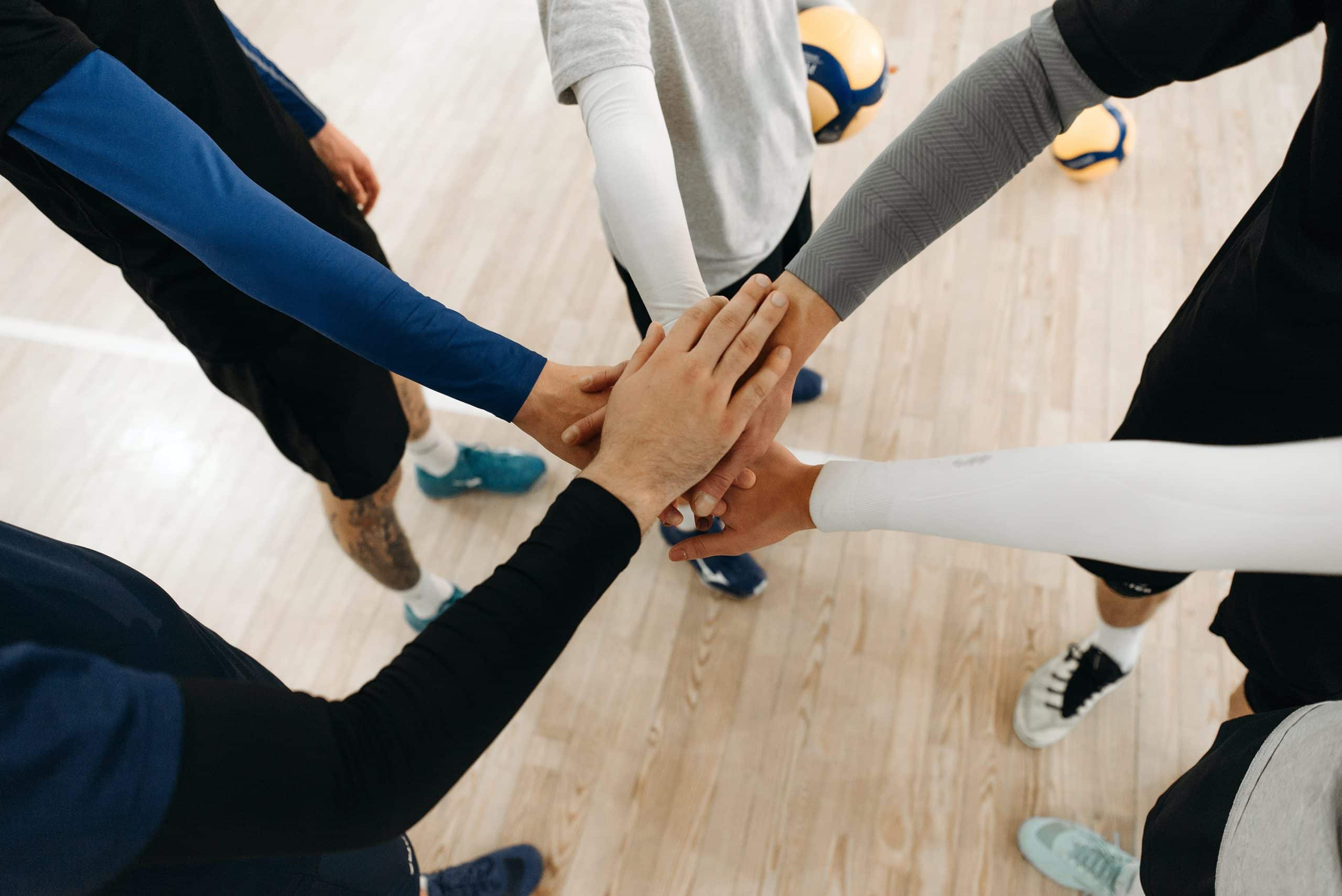Sport has long been more than just a physical activity for fun or competition. It’s a powerful tool for promoting peace, reconciliation, and social development. Indeed, sport has the potential to create a sense of unity and camaraderie among people, even in places where conflict and discord have previously prevailed. From international diplomatic events like the Olympic Games to local community football matches, sports serve as a platform for fostering dialogue, building bridges, and promoting peace.
Sport as a Diplomatic Tool
The intersection of sports and diplomacy is perhaps the most visible on the global stage, namely the Olympic Games. These international sports events are much more than competitions between nations’ best athletes. They serve as a stage for diplomacy, where nations can showcase their culture, demonstrate goodwill, and promote international peace.
Cela peut vous intéresser : Top 5 canyoning tours in Bali you can't miss
The Olympics offer an opportunity for nations to set aside their differences and embrace the spirit of sportsmanship. Whether it’s the powerful image of North and South Korean athletes marching together under a unified flag or the heartwarming stories of athletes from war-torn nations competing with determination, the Olympics consistently promote peace and unity in a global context.
The role of sports in diplomacy extends beyond the Olympic arena. International sports events, such as the World Cup or the Commonwealth Games, also offer similar opportunities for nations to engage in peaceful discourse, establish connections, and promote mutual understanding.
Dans le meme genre : How do athletes prepare for competitions at high altitudes and low oxygen environments in mountain sports?
Building Communities and Promoting Social Development
Sports have a unique capacity to bring people together, fostering a sense of community and mutual respect. This is particularly true in conflict-affected regions, where communal bonds may have been broken due to strife.
Community sports programs, particularly those involving children and youth, can play a significant role in promoting social development. Participating in sports not only provides physical benefits, but also teaches important values such as teamwork, respect for others, and conflict resolution – qualities that are crucial for building peaceful and inclusive communities.
For instance, football, with its universal appeal, is often used as a tool for social change. Community football programs can provide a safe space for children and young people to engage with each other, learn about teamwork and fair play, and develop a sense of belonging. These programs can also serve as platforms for dialogue and reconciliation, helping to heal divisions and promote peace.
Sports and Conflict Resolution
In regions affected by conflict, sport can provide a neutral ground where people can come together, setting aside their differences. Sports can bridge cultural or ethnic divides, promote understanding, and contribute to peacebuilding efforts.
Consider, for instance, the role cricket played in easing tensions between India and Pakistan. The sport witnessed the two nations setting aside their long-standing conflict to compete on the field, promoting a sense of camaraderie and mutual respect among the players and spectators alike.
Programs specifically designed to use sport as a tool for conflict resolution have been implemented in numerous countries, from Rwanda to Northern Ireland. These initiatives use sports to engage communities, foster dialogue, and promote reconciliation.
The Role of International Organizations
International organizations like the United Nations recognize the power of sport in promoting peace and socio-economic development. The UN has adopted several resolutions recognizing the contribution of sport to the achievement of the Sustainable Development Goals. It has also established the International Day of Sport for Development and Peace, celebrated annually on April 6, to highlight and promote the role of sport in driving social change.
Organizations such as the International Olympic Committee and FIFA also play a significant role in promoting peace through sport. They organize international sporting events that unite nations and promote cultural exchange. They also invest in development projects and initiatives that leverage sport to foster peace and social development in conflict-affected regions.
In conclusion, sport is a powerful tool for promoting peace and reconciliation, particularly in conflict-affected regions. Its ability to unite people, foster a sense of community, and promote mutual understanding makes it an effective platform for peacebuilding and diplomatic engagement. Regardless of the level, whether local or international, sports continue to play a pivotal role in building a more peaceful and inclusive world.
The Intersection of Sports Management and International Relations
The management of sports, particularly at the international level, goes beyond merely organizing events and competitions. It entails strategic planning, execution of development projects, fostering international cooperation, and promoting cultural exchange. In essence, sports management plays a crucial role in international relations.
The Olympic Games, historically perceived as a platform for showcasing physical prowess and competitive spirit, serves as a prime example of this intersection. The management of the Games involves diplomatic negotiations, cultural presentations, and peacebuilding initiatives. For instance, the symbolic act of participating nations parading their flags during the opening ceremony is a significant representation of unity and peace, defying political tensions and disputes.
Moreover, international sporting events such as the FIFA World Cup, besides being a global football spectacle, also promote cultural exchange and understanding. Hosting such events often requires countries to engage in diplomatic negotiations and cooperation. The influx of international fans leads to cultural interactions that can foster mutual understanding and social cohesion.
The role of sports management extends to conflict resolution as well. In places like the Ivory Coast, where civil conflict has created deep societal divisions, sport has been utilized as a tool for peace. Sports management facilitated the organization of football matches, fostering unity and providing a platform for peaceful dialogue among the warring factions.
The United Nations, Sports and Sustainable Development
The United Nations (UN), recognizing the potential of sport as a tool for peace and development, has made concerted efforts to promote its use within its framework for sustainable development. The UN’s promotion of sports as an engine for social change is evident in the numerous resolutions adopted by the General Assembly.
Specifically, the UN recognizes the power of sport in achieving the Sustainable Development Goals. It sees sport as a tool for promoting health and well-being, gender equality, quality education, and more. Importantly, sport is recognized for its contribution to Goal 16: promoting peaceful and inclusive societies for sustainable development.
The UN has also marked the International Day of Sport for Development and Peace on April 6 annually. This day celebrates the power of sport in driving social change, peace, and development. It also serves as a reminder of the spirit of camaraderie, unity, and mutual respect that sport can foster.
The UN’s active promotion of sport as a tool for development and peace is a testament to its universal appeal and transformative power. It provides a clear illustration of sport’s unique capacity to transcend cultural, political, and social barriers and unite people towards a common goal.
Conclusion: The Transformative Power of Sport
Sport is undoubtedly much more than physical activity or competition. Its capacity to foster unity, promote understanding, and facilitate peace has made it a critical tool in peacebuilding and conflict resolution. The role of sport in international relations, facilitated through sports management, has made events like the Olympic Games not just a showcase of athletic prowess but a platform for cultural exchange and peaceful dialogue.
International organizations like the United Nations have harnessed the power of sport as well in promoting their Sustainable Development Goals. The recognition of sport’s pivotal role in fostering social cohesion and driving development is a testament to its transformative power.
In the larger picture, the role of sport in promoting peace and reconciliation, especially in conflict-affected regions, cannot be overstated. Whether through communal bonds forged in local matches or through international unity seen in global sporting events, sport continues to break barriers and build bridges. As we look to a future with the aim of peace and inclusivity, the role of sport will remain pivotal.






